Full Schedule
Full Schedule
- Wednesday, July 10, 2024
- PLENARY SESSION - 9:30 AM WEDNESDAY
-
9:30 AM - 11:30 AM CESTPLENARY I: PRESIDENTIAL SYMPOSIUMChair: Amander T. Clark, PhD (she/her/hers) – University of California, Los AngelesPlenary Speaker: Magdalena Goetz, PhD (she/her/hers) – Ludwig-Maximilian University of Munich (LMU)Plenary Speaker: Tina Mukherjee, PhD (she/her/hers) – Institute for Stem Cell Science and Regenerative Medicine (inStem)Plenary Speaker: Kathrin Plath, PhD – University of California Los Angeles School of MedicinePlenary Speaker: Sarah Teichmann, FRS, FMedSci (she/her/hers) – Wellcome - MRC Cambridge Stem Cell Institute & Department of Medicine
The Presidential Symposium aims to showcase cutting-edge research from global leaders in the field of tissue stem cells, pluripotent stem cells, stem cell genomics and machine learning.
-
12:00 PM - 1:00 PM CESTBLUEROCK CLINICAL TRIALS WORKSHOP SPECIAL SESSION: ADVANCES IN THE TREATMENT OF PARKINSON’S DISEASE: THE POSSIBILITIES OF CELL THERAPIESPresenter: David Pedrosa – Universitätsklinikum Giessen und Marburg, Standort Marburg, BaldingerstraßePresenter: Viviane Tabar, MD – Memorial Sloan Kettering Cancer Center
Parkinson’s disease affects more than 8.5 million people worldwide and is the second most common neurodegenerative disease, after Alzheimer’s disease. Current pharmacotherapeutic strategies for treating Parkinson’s disease motor symptoms include augmenting dopamine levels in the brain through dopamine agonists, enhancing dopamine bioavailability, or limiting levodopa degradation. However, these treatments are associated with motor complications, including the development of dyskinesias and narrowing of the therapeutic window, and adverse effects such as exacerbation of non-motor symptoms. Further, these therapies do not address the loss of dopaminergic neurons; thus, there remains a critical need for novel therapies for Parkinson’s disease. The transplantation of dopaminergic neuronal cells into the putamen is an innovative strategy for restoring dopaminergic function in the brains of people with Parkinson’s disease. In this session, we will discuss the advancements in surgical techniques involved in the delivery of cell therapies in the brain. We will also discuss emerging data from the first-in-human phase 1 trial of bemdaneprocel, an hESC derived allogenic, dopaminergic progenitor cell therapy.
- INNOVATION SHOWCASES - 12:00 PM WEDNESDAY
-
12:00 PM - 12:25 PM CESTISSCR STANDARDS IN ACTION: ADVANCEMENTS IN CELL LINE GENERATION AND ORGANOID INNOVATIONShowcase Presenter: Andrew Gaffney – STEMCELL Technologies Inc.
Join us for an insightful session on our latest advancements in cell line generation, featuring the SCTi003-A and SCTi004-A healthy control iPSC lines. These cell lines represent a significant step forward in the field, aligning with and advancing beyond the established ISSCR guidelines for stem cell research. Our presentation will focus on how these lines are shaping the future of stem cell research, including their central role in various applications and contribution to setting new benchmarks in research quality and ethical standards. We will spotlight iPSCdirect™, our efficient, ready-to-use, singularized iPSC product. Additionally, we will showcase the development of various differentiated types and organoids, including the launch of live, experiment-ready midbrain organoids, designed for immediate application upon delivery to your laboratory. Explore how these cutting-edge technologies are revolutionizing disease modeling, drug discovery, and more, while upholding our commitment to advancing research quality and ethical integrity.
Innovation Showcase -
12:00 PM - 1:00 PM CESTCuSTOMIZING ORGANOIDS FOR DRUG DEVELOPMENT AND REGENERATIVE MEDICINEShowcase Presenter: Magdalena Kasendra, PhD – Center for Stem Cell & Organoid Medicine (CuSTOM) at Cincinnati Children'sShowcase Presenter: Katie Kilgour, PhD – Ajinomoto Health & Nutrition North America, Inc.
The rapidly evolving field of stem cell biology is reshaping the medical landscape, offering new tools to enhance human health. At the Center for Stem Cell and Organoid Medicine (CuSTOM) at Cincinnati Children’s, a collaborative, cross-departmental hub of excellence, we harness breakthroughs in developmental biology and pluripotent stem cell technologies to develop three-dimensional tissue structures known as organoids. These platforms enable us to improve our understanding of human biology, model patient-specific diseases in a dish, and advance personalized medicine. However, challenges persist in realizing their full potential and practical applications. To bridge this gap, CuSTOM Accelerator (CA) was established in 2019, with a mission to translate innovations into actionable solutions, fostering synergies between academia and industry to drive the development of organoid-based drug discovery platforms and therapeutics for tissue regeneration and organ replacement. In this talk, I will elucidate our strategy for overcoming key challenges in organoid technology translation, with a keen focus on scalability, robustness, and in situ monitoring and characterization. Highlighting two pivotal organ models—the liver and intestine—I will unveil our pioneering efforts in developing fully automated AI-empowered organoid-based platforms for high-throughput drug assessment. Additionally, I will offer insights into our journey towards translating human organoids from bench to bedside, including our efforts on the establishment of cGMP-compliant scalable manufacturing of organoids in matrix-free suspension culture.
Innovation Showcase -
12:00 PM - 1:00 PM CESTTRANSFORMING HiPSC DIFFERENTIATION BY INCREASING EFFICIENCY AND FIDELITY FOR NPCS, HSCS, AND LPCSShowcase Presenter: Jessica Hartman – Cell Microsystems
Unlocking the full potential of patient-derived and genetically modified human induced pluripotent stem cells (hiPSCs) for disease modeling requires precise differentiation protocols. Despite the availability of various protocols and kits, the technical intricacies of hiPSC differentiation often lead to inefficiencies and reproducibility challenges. We aim to address these hurdles by leveraging CellRaft® Technology, offering solutions for hiPSC differentiation workflows. What you will learn: - How to enhance efficiency in hiPSC differentiation - How to automate the monitoring and isolation of neural progenitor cells (NPCs), ensuring high fidelity differentiation - How to improve hematopoietic progenitor cell (HSC) differentiation, leading to enhanced colony survival and yield - How to utilize technology to streamline differentiation by accurately purifying populations, increasing differentiation accuracy Overall, our findings underscore the significance of automating manual steps in hiPSC differentiation, highlighting how image-based monitoring, phenotypic selection, and isolation can enhance efficiency and fidelity, thereby expediting the development of relevant disease models.
Innovation Showcase -
12:00 PM - 1:00 PM CESTSTEM CELLS IN LOW EARTH ORBIT: THE NEXT FRONTIERShowcase Presenter: Michael Roberts, PhDShowcase Presenter: Meghan Everett, PhDShowcase Presenter: Catriona Jamieson, PhDShowcase Presenter: Valentina Fossati, PhDShowcase Presenter: Jeanne Loring, PhD – Scripps Research InstituteShowcase Presenter: Arun Sharma – Cedars-Sinai Medical Center Regenerative Medicine Institute
The " Stem Cells in Low Earth Orbit: The Next Frontier" at the ISSCR Conference aims to explore the groundbreaking intersection of stem cell research and the unique environment of low Earth orbit (LEO). This panel brings together leading experts to discuss the latest advancements, challenges, and prospects of conducting stem cell research onboard the International Space Station (ISS). Attendees will gain insights into how microgravity and the extreme space environment can influence stem cell behavior and the potential implications for regenerative medicine and biomanufacturing. Panel Objectives: 1. Highlight Innovations: Showcase recent innovations from stem cell research conducted in LEO and their potential applications for regenerative medicine and beyond. 2. Discuss Challenges: Address the scientific and logistical challenges of conducting stem cell research in space and potential solutions. 3. Future Prospects: Explore the future of stem cell research in space, including opportunities for collaboration to accelerate the translation of emerging technologies for applications on Earth. 4. Engage with Experts: Provide an interactive platform for attendees to engage with leading scientists and researchers in the field.
Innovation Showcase -
12:00 PM - 1:00 PM CESTTHE FUTURE OF CELL CULTURE: EMPOWERING RESEARCHERS TO MAKE KEY DECISIONS SOONER, ACHIEVE MILESTONES FASTER, AND GET TO CLINIC EARLIER—WITH LOWER ATTRITION RATESShowcase Presenter: Felix Spira – Molecular Devices
The majority of drugs fail in the later stages of the drug development pipeline and in clinical trials because of insufficient predictivity of cell models used to screen drug candidates. Organoids show great promise as a game-changer in disease modeling and drug screening since they better resemble tissue structure and functionality, and show more predictive response to drugs. However, challenges associated with using organoids, such as assay complexity, reproducibility, and the ability to scale up have limited their widespread adoption as a primary screening method in drug discovery. To alleviate the bottlenecks that come with labor-intensive manual protocols, we developed the CellXpress.ai™ Automated Cell Culture System. This instrument automates the entire 3D organoid or 2D cell culture workflow: providing media exchange, plating, passaging, organoid monitoring, end-point assay execution, and complex image analysis. It contains functional components including an automated imager, liquid handler, and incubator, connected by AI- powered software. The development of cell cultures is monitored by periodic imaging and analysis, which can trigger automatic decisions to initiate passaging, end-point assays, or troubleshooting steps. We will present the results from the automation of several commonly used 3D organoid protocols, as well as 2D assays.
Innovation Showcase -
12:00 PM - 1:00 PM CESTGENETIC WHACK-A-MOLE: BATTLING INSTABILITIES IN iPSCSShowcase Presenter: Brian Hawkins – Pluristyx, Inc.
With the ability to differentiate into all body tissue types and the potential for commercial scale manufacture, human induced Pluripotent Stem Cells (iPSCs) are an ideal starting material for the next generation of cellular therapeutics. However, inconsistency in the culture process can predispose cells to genetic abnormalities that can influence growth rate and differentiation efficiency. Persistence of these genetic alternations in the final product can introduce a safety risk to patients receiving these life altering therapies. Detecting genetic abnormalities is difficult, as no single assay can cover all potential alterations and may be at low levels that are below the detection limit of some assays. A combination of testing modalities at frequent and predetermined intervals can cover the most common genetic alterations and limit downstream risk. Similarly, culture strategies can be implemented to minimize the rate of de novo mutations and prevent abnormal colonies from overtaking genetically normal variants. This presentation will discuss the challenges of maintaining genetic integrity during the commercial manufacture of iPSCs and propose practical approaches to ensuring that clinical iPSCs are free of mutations for product development.
Innovation Showcase -
12:25 PM - 1:00 PM CESTIMPROVING THE GENETIC STABILITY OF SINGLE-CELL-PASSAGED HUMAN PLURIPOTENT STEM CELL CULTURES USING eTeSR™Showcase Presenter: Adam Hirst – STEMCELL Technologies Inc.
In this talk, we’ll discuss new genetic stability data on cultures maintained in eTeSR™, a novel human pluripotent stem cell (hPSC) maintenance medium, specifically developed to support routine single-cell passaging. The study comprises over 250 SNP microarray samples collected from clones derived using three hPSC lines and maintained for 20 weeks in four media conditions. The study shows that clones maintained in eTeSR™ acquire fewer de novo cytogenetic changes compared to two alternative, commercially available maintenance media. This improvement in genetic stability can be attributed to the absence of 20q11 gains in eTeSR™-maintained cultures, a recurrent abnormality that has been well-documented in hPSC cultures. This study provides a better understanding of culture-acquired genetic aberrations in hPSCs and demonstrates that innovative media formulations such as eTeSR™ can address major challenges in the hPSC field.
Innovation Showcase - PLENARY SESSION - 1:30 PM WEDNESDAY
-
1:30 PM - 3:35 PM CESTPLENARY II: NEW TECHNOLOGIES TO ENGINEER AND PHENOTYPE STEM CELL SYSTEMSCo-Chair: Filipe Pereira, PhD (he/him/his) – Lund UniversityCo-Chair: Barbara Treutlein, PhD (she/her/hers) – ETH ZürichPlenary Speaker: Jonathan Weissman, PhD – Whitehead Institute for Biomedical Research, HHMI, MITPlenary Speaker: Fabian Theis, PhD (he/him/his) – Helmholtz Zentrum MünchenPlenary Speaker: Susanne Rafelski, PhD (she/her/hers) – Allen Institute for Cell SciencePlenary Speaker: Matthias P. Lutolf, PhD – Institute of Human Biology (IHB) F. Hoffmann-La RocheAward Winner: Jun Wu, PhD (he/him/his) – University of Texas Southwestern Medical Center
Recent technological and analytical advances have made it possible to characterize stem cell systems at an unprecedented resolution. This session highlights emerging single cell and imaging technologies to phenotype stem cells as well as to program or perturb cell fate.
ISSCR Outstanding Young Investigator Award
Jun Wu, PhD, University of Texas Southwestern Medical Center, USANew Technologies - SCIENCE SPOTLIGHTS - 4:00 PM WEDNESDAY
-
4:00 PM - 5:30 PM CESTTRANSLATION OF ACADEMIC RESEARCH: FROM NICE TO HAVE TO CLINICAL IMPERATIVEScience Spotlight Moderator: Ana Hidalgo-Simon, MD, PhD – Leiden University Medical CenterScience Spotlight Speaker: Stefan Irion, MD (he/him/his) – BlueRock TherapeuticsScience Spotlight Speaker: Melanio Unas Mauricio, III, MSc (he/him/his) – Leiden University Medical CenterScience Spotlight Speaker: Lisa Ott de Bruin, MD, PhD – Leiden University Medical CentreScience Spotlight Speaker: Chantal van Litsenburg, MSc, MBA (she/her/hers) – Leiden University Medical CenterScience Spotlight Speaker: Leanne Rees, B.App.Sc.(Physiotherapy), MPH, PhD – Murdoch Childrens Research Institute, reNEW PREPAREScience Spotlight Speaker: Josefine Rågård Christiansen, MSc (she/her/hers) – University of Copenhagen
Organized by: Chantal van Litsenburg, Leiden University Medical Center, The Novo Nordisk Foundation Center for Stem Cell Medicine (reNEW)
Ana Hidalgo-Simon, Leiden University Medical Center, The Novo Nordisk Foundation Center for Stem Cell Medicine (reNEW)
The dynamic field of translational medicine, particularly in the context of cutting-edge cell and gene therapies, is reshaping the role of academic research centers. This session will discuss optimizing the academic research framework for clinical relevance, focusing on regulatory science, accessibility, stakeholder engagement, and organizational optimization.
Academic institutions are increasingly pressurized to drive the progression from pre-clinical stages to clinical trials, with the potential to achieve market authorization. With the rising interest in academic drug development and the backdrop of healthcare sustainability challenges, there's a growing shift of public funding towards research collaborations focused on clinical applications. However, institutions often lack the specific capacity, knowledge and focus, which are essential for successfully navigating the entire development pathway to market authorization.
The session will explore pivotal areas for researchers in translational medicine, stressing the importance of translatable approaches for research impact. Accessibility, including regulatory navigation and Health Technology Assessment, is vital for successful translation and influences funding and EU legislation debates. Engaging stakeholders strategically is crucial for aligning therapies with clinical goals and patient expectations. Finally, the need for organizational innovation is discussed, highlighting strategies for cross-disciplinary collaboration and rethinking structures to support research's transformation into clinically impactful therapies.
16:00 - 16:10 Ana Hidalgo-Simon, Leiden University Medical Center, Netherlands
INTRODUCTION AND SETTING THE SCENE
16:10 - 16:20 Stefan Irion, BlueRock Therapeutics, USA
ACCESS TO THE CLINIC: WORKING TOWARDS A SUSTAINABLE HEALTH SYSTEM
16:20 - 16:35 PANEL DISCUSSION: ACCESS TO THE CLINIC
Panel Moderator:
Ana Hidalgo-Simon, Leiden University Medical Center, Netherlands
Panelists:
Stefan Irion, BlueRock Therapeutics, USA
Chantal van Litsenburg, Leiden University Medical Center, Netherlands
Melanio Mauricio, Leiden University Medical Center, Netherlands
16:35 - 16:45 Lisa Ott de Bruin, Leiden University Medical Center, Netherlands
STRATEGIC STAKEHOLDER ENGAGEMENT
16:45 - 17:00 PANEL DISCUSSION: STRATEGIC STAKEHOLDER ENGAGEMENT
Panel Moderator:
Ana Hidalgo-Simon, Leiden University Medical Center, Netherlands
Panelists:
Lisa Ott de Bruin, Leiden University Medical Center, Netherlands
Leanne Rees, Murdoch Children’s Research Institute, Australia
Stefan Irion, BlueRock Therapeutics, USA
17:00 - 17:10 Chantal van Litsenburg, Leiden University Medical Center, Netherlands
OPTIMIZING THE ORGANIZATIONAL FRAME: CHALLENGES IN A CHANGING ENVIRONMENT
17:10 - 17:25 PANEL DISCUSSION: OPTIMIZING THE ORGANIZATIONAL FRAME
Panel Moderator:
Ana Hidalgo-Simon, Leiden University Medical Center, Netherlands
Panelists:
Chantal van Litsenburg, Leiden University Medical Center, Netherlands
Lisa Ott de Bruin, Leiden University Medical Center, Netherlands
Josefine Rågård Christiansen, University of Copenhagen, Denmark
17:25 - 17:30 Ana Hidalgo-Simon, Leiden University Medical Center, Netherlands
CLOSING REMARKSScience Spotlight -
4:00 PM - 5:30 PM CESTHARVESTING STEM CELL INNOVATION: THE SYMBIOTIC RELATIONSHIP BETWEEN ACADEMIA AND INDUSTRY IN CULTIVATED MEAT DEVELOPMENTScience Spotlight Moderator: Malkiel A. Cohen, PhD (he/him/his) – Wanda FishScience Spotlight Moderator: Neta Lavon, PhD (she/her/hers) – Aleph FarmsScience Spotlight Speaker: Paul Burridge, PhD – Northwestern UniversityScience Spotlight Speaker: Annisa Chand, PhD (she/her/hers) – Nature FoodScience Spotlight Speaker: Niraimathi Govindasamy, PhD (she/her/hers) – Bluu SeafoodScience Spotlight Speaker: Michelle Hauser – TAU / The Good Food InstituteScience Spotlight Speaker: Shulamit Levenberg, PhD – Technion Israel Institute of TechnologyScience Spotlight Speaker: Shigeki Sugii, PhD – SIFBI, A*STAR / ImpacFatScience Spotlight Speaker: Christine Ling Li Trautmann – ETH ZürichScience Spotlight Speaker: Maria Fernandes, PhD – Meatable
Organized by: Neta Lavon, Aleph Farms, Israel
Malkiel Cohen, Wanda Fish, Israel
Christine Trautmann, ETH Zurich, Switzerland
Michelle Hauser, Tel Aviv University, Israel
Cultivated meat, an innovative cellular agriculture method, addresses climate change, resource scarcity, and a growing population. It transforms animal stem cells into a sustainable nutrition source, countering challenges in traditional livestock farming. With the global population surpassing 8 billion, conventional methods are insufficient. Cultivated meat offers a solution, ensuring a diverse and secure supply of high-quality animal products while minimizing the environmental impact. Despite the advances of this new chapter of animal agriculture, the field encounters multi-faceted challenges. These encompass fundamental research areas such as comprehensive stem cell characterization, improving differentiation processes, growth media and bioprocessing optimization, and improved tissue engineering methods. Moreover, scalability and cost-effectiveness pose significant hurdles in achieving widespread adoption and commercial viability. Therefore, ongoing research is vital to drive innovations to enhance the prospects of cultivated meat for future advancements. This session explores the science of cultivated meat and cellular agriculture, presenting diverse research from academic labs and the cultivated meat industry. Hear insights from academic leaders, trainees, industry experts, and non-profit organizations, fostering a dynamic exchange of knowledge and expertise on grant funding, career opportunities, and collaborative research translations between academia and industry for transformative advancements.
4:00 - 4:05 Neta Lavon, Technion Israel Institute of Technology, Aleph Farms, Israel
GREETING TO SCIENCE SPOTLIGHT PARTICIPANTS
4:05 - 4:20 Shulamit Levenberg, Technion Israel Institute of Technology, Aleph Farms, Israel
RAISING THE STEAKS: DISCOVERING NOVEL CELL SOURCES AND ADVANCING 3D BIOPRINTING IN CULTIVATED MEAT
4:20 - 4:35 Shigeki Sugii, SIFBI, A*STAR, / Impact Fat, Singapore
CULTIVATED FISH FAT AS NOVEL FOOD AND NUTRITIONAL SOURCES
4:35 - 4:45 Christine Trautmann, ETH Zurich, Switzerland
OPTIMIZED BOVINE MYOGENESIS IN VITRO THROUGH MODULATION OF SIGNALING PATHWAYS FOR CULTIVATED MEAT APPLICATIONS
4:45 - 5:00 Maria Fernandes, Meatable, Netherlands
FORWARD PROGRAMMING OF PLURIPOTENT PIG STEM CELLS FOR HIGH QUALITY MUSCLE AND FAT
5:00 - 5:30 PANEL DISCUSSION: CULTURED MEAT: FUNDING, BASIC AND TRANSLATIONAL RESEARCH, AND CAREER OPPORTUNITIES
Moderator:
Malkiel Cohen, Wanda Fish, Israel
Panelists:
Paul W. Burridge, Clever Carnivore/Northwestern University, USA
Annisa Chand, Nature Food, Germany
Niraimathi Govindasamy, Bluu Seafood, Germany
Michelle Hauser, Tel Aviv University / Consultant at GFI, IsraelScience Spotlight -
4:00 PM - 5:30 PM CESTFRONTIERS IN EPIGENETIC CONTROL FOR ENHANCED STEM CELL THERAPIESScience Spotlight Moderator: Gregory Block, PhD (he/him/his) – Histone TherapeuticsScience Spotlight Moderator: Isaac R. Gabriel, Student – University College LondonScience Spotlight Speaker: Debattama R. Sen, PhD (she/her/hers) – Harvard University / Massachusetts General Hospital Center for Cancer ResearchScience Spotlight Speaker: Sara Che, PhD – Tune TherapeuticsScience Spotlight Speaker: Hannele Ruohola-Baker, PhD (she/her/hers) – University of WashingtonScience Spotlight Speaker: Lise Munsie, PhD – CCRMScience Spotlight Speaker: Rowan Flynn, PhD – RoslinCTScience Spotlight Speaker: Sarah J. Dickerson (she/her/hers) – FUJIFILM
Organized by: Gregory Block, Histone Therapeutics
Our symposium, "Frontiers in Epigenomic Control for Enhanced Stem Cell Therapies," will explore the latest advancements and methodologies in the field. It will delve into the successes and challenges of manipulating the epigenome to direct stem cell fate and function. The session will highlight the progress being made engineering therapeutically relevant cells as well as discussing the utility of epigenomic functional screening to understand basic cell development mechanisms.
4:00 - 4:10 Isaac Gabriel, University College London, UK
Gregory Block, Histone Therapeutics, Canada
WELCOME AND OVERVIEW OF EPIGENETIC GENE EDITING IN STEM CELLS
4:10 - 4:25 Debattama Sen, Harvard University / Massachusetts General Hospital Center for Cancer Research, USA
EPIGENETICS OF T-CELL EXHAUSTION
4:25 - 4:40 Sara Che, Tune Therapeutics, USA
PRECISION EPIGENOME EDITING FOR GUIDED IPSC DIFFERENTIATION
4:40 - 4:55 Hannele Ruohola-Baker, University of Washington, USA
DECODING REGENERATION USING COMPUTER DESIGNED EPIBINDER PROTEINS
4:55 - 5:00 QUESTIONS AND ANSWERS
Panel Moderator:
Isaac Gabriel, University College London, UK
5:00 - 5:30 PANEL DISCUSSION: LESSONS FROM THE EDITORS, MAKING ENHANCED CELLS A REALITY
Panel Moderator:
Gregory Block, Histone Therapeutics, Canada
Panelists:
Lise Munsie, CCRM (Centre for Commercialization of Regenerative Medicine), Canada
Rowan Flynn, RoslinCT, Scotland
Sarah Dickerson, FUJIFILM, USAScience Spotlight -
4:00 PM - 5:30 PM CESTEXPLORING BIOPHYSICAL CUES: UNRAVELING MECHANOTRANSDUCTION IN PLURIPOTENT STEM CELL DIRECTED DIFFERENTIATIONScience Spotlight Moderator: Dana Brinson, BSc (she/her/hers) – University of TorontoScience Spotlight Moderator: Golnaz Karoubi – University Health NetworkScience Spotlight Speaker: Sara Wickström, MD, PhD – Max Planck Institute for Molecular BiomedicineScience Spotlight Speaker: Claudia Loebel, MD, PhD – University of MichiganScience Spotlight Speaker: Dylan Mostert, PhD – Eindhoven University of Technology
Organized by: Dana Brinson, University of Toronto, Canada
Golnaz Karoubi, University Health Network, Canada
This session will explore the interplay between biophysical cues and pluripotent stem cell differentiation. Participants will hear about current progress in leveraging the mechanical microenvironment to improve the fidelity of stem cell-derived tissues. Recent advancements in our understanding of how mechanotransduction directs cell fate via epigenomic changes will be discussed, providing a comprehensive update on the current state of knowledge in this emerging subject.
4:00 - 4:05 Dana Brinson, University of Toronto, Canada
Golnaz Karoubi, University Health Network, Canada
WELCOME AND INTRODUCTION
4:05 - 4:30 Sara Wickström, Max Planck Institute for Molecular Biomedicine, Germany
MECHANICAL REGULATION OF STEM CELL STATE
4:30 - 4:55 Claudia Loebel, University of Michigan, USA
NASCENT MATRIX DEPOSITION GUIDES IPSC-DERIVED ALVEOLAR ORGANOID FUNCTION IN SYNTHETIC HYDROELS
4:55 - 5:15 Dylan Mostert, Eindhoven University of Technology, Netherlands
BREAKING BARRIERS FOR NEXT-GENERATION THERAPIES: MECHANIOSENSITIVITY OF STEM CELL-DERIVED CARDIOMYOCYTES
5:15 – 5:30 Three rapid-fire poster trainee poster presentations, to be selected from the accepted poster abstracts
Iona Grace, Thelwall, University of Cambridge, UK
Dana Brinson, University of Toronto, Canada
Wei Jiang, Wuhan University, ChinaScience Spotlight -
4:00 PM - 5:30 PM CESTCELL POLARITY IN ORGANOID-DERIVED MODELS OF HEALTH AND DISEASEScience Spotlight Moderator: Georg Csukovich, PhD – University of Veterinary Medicine, ViennaScience Spotlight Speaker: Sina Bartfeld, PhD – Technische Universität BerlinScience Spotlight Speaker: Lena Schorr, MSc (she/her/hers) – German Cancer Research Center HeidelbergScience Spotlight Speaker: Merve Ceylan, MSc – Uppsala University
Organized by: Georg Csukovich, University of Veterinary Medicine, Vienna This Science Spotlight Session highlights the importance of cell polarity in organoid-based models. Cell polarity is not only crucial in the developing human body, but also for homeostasis and pathophysiological processes in the adult human body (maintenance of the stem cell niche, viral/bacterial infection of cells, etc.). Methods like reversing organoid cell polarity or generation of organoid-derived monolayers give researchers experimental control and access to polarized surfaces, but can modify the stem and differentiated cell niches. Thus, newly established organoid-based models need to be carefully evaluated beforehand to ensure meaningful outcomes. We want to discuss the different models available to probe the basolateral and apical cell surfaces and opportunities and trade-offs of controlling cell polarity in 3D models. 4:00 - 4:12 Georg Csukovich, University of Veterinary Medicine, Austria WELCOME AND OVERVIEW 4:12 - 4:36 Sina Bartfeld, Technische Universität Berlin, Germany CELL POLARITY AND DIFFERENTIATION IN GASTROINTESTINAL ORGANOIDS AND ORGANOID-DERIVED INFECTION MODELS 4:36 - 4:48 Lena Schorr, German Cancer Research Center, Germany MODELLING CANCER-MICROBE INTERACTIONS WITH ORGANOIDS AND ORGAN-ON-CHIP 4:48 - 5:00 Merve Ceylan, Uppsala University, Sweden ENHANCING INTESTINAL ADME RESEARCH USING HUMAN ENTEROIDS 5:00 - 5:30 PANEL DISCUSSION: CHALLENGES ASSOCIATED WITH EPITHELIAL POLARITY IN ORGANOID-DERIVED MODELS Panel Moderator: Georg Csukovich, University of Veterinary Medicine, Austria
Science Spotlight - FOCUS SESSION, EDI & CAREER PANEL - 4:00 PM WEDNESDAY
-
4:00 PM - 5:30 PM CESTTOOLS FOR BASIC AND APPLIED STEM CELL BIOLOGYFocus Session Speaker: Tenneille Ludwig, PhD – WiCell Research InstituteFocus Session Speaker: Laurent David, PhD – Universite de NantesFocus Session Speaker: Camille Tempier Lemey, PhD – STEMCELL TechnologiesFocus Session Speaker: Dmitry A. Ovchinnikov, PhD – The Florey / University of MelbourneFocus Session Speaker: Grazia Iannello, PhD – Columbia UniversityFocus Session Speaker: Sebastian Diecke, PhD – Max Delbruck Center for Molecular MedicineFocus Session Speaker: Sarah Perez Munoz, PhD – Thermo Fisher Scientific
Organized by COREdinates
Supported by STEMCELL Technologies and Thermo Fisher Scientific
Stem Cell COREdinates (www.COREdinates.org) is an international consortium of human pluripotent stem cell-focused core facilities that share expertise with protocols, reagents, and technological advancements to establish “best practices" in the maintenance, derivation, differentiation and genetic manipulation of human pluripotent stem cells. Each of our member cores plays an important role in the research and educational missions of their respective institutions. The Focus Session will have selected presentations from Stem Cell COREdinate members and our sponsors. These presentations will cover a number of different areas of expertise including stem cell characterization, gene editing and disease modeling.This session will benefit stem cell researchers who are just starting to use pluripotent stem cell tools in their own laboratories and experienced researchers who are seeking to expand their toolbox. These presentations from the COREdinate members will cover a variety of topics that will have direct impact on improving workflow, establishing new technology and advancing existing methodology.Focus Session -
4:00 PM - 5:30 PM CESTEQUITY, DIVERSITY, AND INCLUSION IN THE DISHChair: Brian Aguado, PhD – University of California San DiegoSpeaker: Ralda Nehme, PhD – Broad Institute of Harvard and MIT and Harvard UniversitySpeaker: Raeka Aiyar, PhD (she/her/hers) – Community Science, LLCSpeaker: Magdalena Kasendra, PhD – Center for Stem Cell & Organoid Medicine (CuSTOM) at Cincinnati Children's
Stem cells offer significant potential to unravel disease mechanisms, inform novel medicines, and develop innovative cell therapies for challenging medical conditions. However, there is a growing appreciation that a “one size fits all” approach to research and therapies is not applicable to all individuals. Biases in stem cell sourcing have exacerbated disparities in our understanding of how genetic ancestry impacts stem cell phenotypes. Specifically, genetic background is rarely considered as a biological variable for in vitro disease models, despite the significant influence that biological variables such as sex or ancestry have on overall cell phenotypes, including maintenance of pluripotency, differentiation tendencies, and responses to developmental signals. The primary objective of this session is to highlight current practices for diversifying biological samples in the lab and leveraging diversity in stem cell research. This session will also define plans to improve the accessibility of stem cell therapies through financial considerations, global access, and policy/ethics considerations.
Ethics, Policy and Standards -
4:00 PM - 5:30 PM CESTCAREER PLURIPOTENCY: PIONEERING PATHS IN ACADEMIC AND NON-ACADEMIC SECTORSModerator: Thomas Hutschalik, MSc (he/him/his) – Ncardia Services B.V.Panelist: Chris Bond – Notch TherapeuticsPanelist: Melissa K. Carpenter, PhD – Carpenter Consulting CorporationPanelist: Giuliana Gagliardi, PhD – European Research Council Executive AgencyPanelist: Tina Mukherjee, PhD (she/her/hers) – Institute for Stem Cell Science and Regenerative Medicine (inStem)
Career Panel
If you find yourself caught up in the excitement yet daunted by the rapid evolution in stem cell research, join our career panel this year.
In this session, we will bring together a diverse group of experts to explore the dynamic landscape of stem cell scientists and to discuss the evolving career opportunities in this field. Our panelists will share their professional trajectories, discuss both academic and non-academic paths in stem cell science, and provide insights for young scientists on how to navigate their own journey.
Join us for an exciting session that aims to empower you to thrive in the face of career uncertainty.
We invite Career Panel attendees to submit questions via this Slido.com link during the session. The moderator will prompt you to enter your questions topic by topic.Panel - POSTER SESSIONS & EXHIBIT HALL EVENTS - 5:45 PM WEDNESDAY
-
5:45 PM - 7:30 PM CESTOPENING RECEPTION
An opportunity for all attendees to mingle at this reception of light bites and drinks in the Exhibit Hall before and during the first poster session.
-
5:45 PM - 7:45 PM CESTPOSTER SESSIONS and EXHIBIT HALL EVENTS
Join us for these events in the Poster and Exhibit Hall:
5:45 PM – 7:30 PM OPENING RECEPTIONSupported by AMSBIO, bit.bio, PBS Biotech, Qkine, Science Advances/AAAS, and WiCell
5:45 PM- 6:45PM POSTER SESSION I: ODD
6:45 PM – 7:45 PM POSTER SESSION I: EVEN
EXHIBIT HALL THEATER TALKSBite-sized, 15-minute sessions on specialized topics. Pop in and out of the Exhibit Hall Theater to catch these brief presentations from scientific and industry leaders..
MEET-UP HUBS Connect with your colleagues and engage in conversation and networking at these common interest discussion forums. - MEET-UP HUBS - WEDNESDAY 5:45 PM - 7:45 PM
-
5:45 PM - 7:45 PM CESTMEET-UP HUB 1: COMPUTATIONAL BIOLOGY
Organized by Christine Wells, University of Melbourne, Australia and Owen Rackham, University of Southhampton, UK
Computational biology is an emerging specialty within the Stem Cell Sciences. Computational stem cell biology invents and applies mathematical approaches to classifying stem cells, predicting cell behaviour, and designing reprogramming strategies or even new cell types. This forum is an opportunity to meet others working in the field, discuss opportunities and challenges for computational stem cell sciences, and highlight resources and standards that we want to work to as a discipline. -
5:45 PM - 7:45 PM CESTMEET-UP HUB 2: STUDENT AND POST DOC NETWORKING
Organized by the ISSCR Early Career Scientist Task Force
Come join the members of the Early Career Scientist Task Force as they discuss evolving career opportunities in stem cell research. Students and postdocs who attended the earlier Career Panel session can continue the conversation, and all students and post docs are encouraged to join in and network with your peers. Bring your questions and considerations about navigating your career journey. Come join the conversation! -
5:45 PM - 7:45 PM CESTMEET-UP HUB 3: RENEW ECR NETWORKING HUB
Organized by Natalie Charitakis, Murdoch Children’s Research Institute, Australia
A space for Novo Nordisk Foundation Center for Stem Cell Medicine, ReNEW, Early Career Researchers from all international hubs to meet and connect with one another. Our goal is to create a vibrant atmosphere where ECRs from three international hubs can come together to collaborate, exchange ideas, and establish professional connections. Here, you'll have the opportunity to delve into stimulating discussions, explore new concepts, and draw inspiration from the projects presented at the event.
This rare chance for our international community of stem cell medicine experts to meet face-to-face promises to strengthen ties and pave the way for future collaborations. Don't miss out on this invaluable opportunity to connect with fellow researchers, expand your network, and contribute to the advancement of stem cell research. -
5:45 PM - 7:45 PM CESTMEET-UP HUB 1: INDUSTRY SCIENTISTS NETWORKING
Organized by the ISSCR Manufacturing, Clinical Translation, and Regulatory Committee
The ISSCR Manufacturing, Clinical Translation, and Regulatory Committee invites interested attendees to join them to network and discuss various industry-related topics, including new developments, collaborations, and potential career paths. -
5:45 PM - 7:45 PM CESTMEET-UP HUB 2: UK STEM CELL NETWORK
Organized by Lyn Healy, Franics Crick Institute, UK
The UK is setting up a network to promote interaction between all stakeholders in the Stem Cell and Regenerative Medicine community. As the meeting this year is in Europe, we predict that many scientists will attend from the UK therefore a meet-up-hub would enable prospective members of the network to gather and discover what the network is planning to establish and how the needs of the community can be addressed, explored and developed. It will afford the community the opportunity to come together and interact on an informal basis, exchange ideas and make new professional contacts. It will also reunite colleagues who might have lost contact over the years since we have been without a network. -
5:45 PM - 7:45 PM CESTMEET-UP HUB 3: STEM CELLS AND CANCER
Organized by Juli Unternaehrer, Loma Linda University, USA
Let's meet to discuss our work on the interaction of stem cells and developmental pathways with cancer biology. - EXHIBIT HALL THEATER - WEDNESDAY
-
5:40 PM - 5:55 PM CESTHUMAN PLURIPOTENT STEM CELL (HPSC) PLATFORMS FOR TARGET DISCOVERY AND THERAPEUTIC DEVELOPMENTTheater Speaker: Bilada Bilican, PhD – AstraZanecaExhibit Hall Theater
-
6:00 PM - 6:15 PM CESTSTREAMLINE YOUR RESEARCH: THE ADVANTAGES OF OUR COMPREHENSIVE GENOMIC INTEGRITY TESTING, CELL AUTHENTICATION, AND MYCOPLASMA DETECTION SOLUTIONSTheater Speaker: Reda Zenagui – Stem Genomics
Researchers face significant challenges when working with human stem cells, including genomic abnormalities, cell line authentication issues, and bacterial contamination. These factors not only compromise the safety and reliability of research results, but also affect the overall reputation of the field. In response to these concerns, the ISSCR has issued guidelines aimed at mitigating these risks, as outlined in the “Standards for the Use of Human Stem Cells in Research”, published in June 2023. To address these challenges, we offer a comprehensive solution. Our one-stop shop provides fast genomic integrity testing, cell line authentication, and mycoplasma detection services throughout the cell culture lifecycle. Our 3-in-1 offering includes: • The iCS-digital™ range, a digital PCR-based karyotyping assay that detects recurrent abnormalities in human stem cell lines (hPSCs, hMSCs and other stem cell types). • STR (Short Tandem Repeat) testing is used to verify the identity of your cell line. • The Myco-digital test, specifically designed to target several mycoplasma genomes. Our fast, standard service delivers results in as little as 3 days and we provide comprehensive yet simple reports that can be easily understood. In summary, our one-stop shop solution offers unparalleled convenience, quality, and support for scientists. Experience the difference today and unlock the full potential of your research.
Exhibit Hall Theater -
6:20 PM - 6:35 PM CESTANALYSIS, IMAGING, AND SORTING OF SPHEROIDS, ORGANOIDS, AND 3D CELL CLUSTERS ON THE COPAS VISIONTheater Speaker: Rock Pulak – Union Biometrica, Inc
Large particle flow cytometers from Union Biometrica provide automation for the analysis and dispensing of intact cell clusters. Cells growing in clusters communicate with each other and behave differently than cells grown as monolayers or in suspension. Many cell types will naturally form cell clusters when given the opportunity. These organoids and spheroids are believed to more closely recapitulate a normal physiological state. Research using stem cell clusters, organoids, tumor spheres and other types of 3D cultures are important biological systems for the discovery of signals responsible for normal development as well as the abnormal disease states. The COPAS Vision instrument can characterize these sample types with measurements typical of flow cytometry, like size, optical density, and fluorescence. In addition, the COPAS Vision collects brightfield images of the cell clusters during analysis. The COPAS Vision instrument provides automation for unbiased analysis, handling of large numbers of cell clusters, and dispensing of these sample types in a multiwell plate format. This approach can be used to characterize populations of organoids and organoid bodies of various types. Dispensing to wells of multiwell plates provides an approach to using these 3D cultures in large scale biological assays and screens.
Exhibit Hall Theater -
6:40 PM - 6:55 PM CESTFROM R&D TO MANUFACTURING: THE CELL AS A PRODUCTTheater Speaker: Philipp Nold – Eppendorf SE
Cell and gene therapies represent groundbreaking advancements in personalized medicine and regenerative therapies, employing "living" medications derived from genes, tissues, or cells to combat various diseases. Within this innovative domain, the progress in the development of cell therapies necessities in the need of high quantities and qualities of cells manufactured through precisely monitored and traceable bioprocesses. As the industry moves more and more in the direction of allogenic cell therapies, single-use stirred-tank bioreactors have emerged as the tool of choice for the scalable production required in the transition from autologous to allogeneic cell therapies. This paradigm shift underscores a future where the scalability and control afforded by cutting-edge bioprocessing technologies are central to harnessing the full potential of cell therapies, marking a significant milestone in the journey from laboratory research to robust manufacturing frameworks. In this talk, we will highlight the importance of process understanding and control, the implementation of automation and digital solutions significantly improve process performance.
Exhibit Hall Theater -
7:00 PM - 7:15 PM CESTINNOVATIVE scFAST-seq TECHNOLOGY: ACCESSING ANALYSIS FROM MUTATION, REGULATION TO EXPRESSIONTheater Speaker: Irene Wei
Single-cell RNA sequencing (scRNA-seq) is pivotal for exploring cellular heterogeneity, but current methods have limitations. They rely on oligo-dT primers, leading to poor detection of non-polyadenylated transcripts and bias towards RNA ends. To overcome these challenges, we introduce Single Cell Full-length RNA Sequence Transcriptome-seq (scFAST-seq), an innovative, rapid, and cost-effective method. scFAST-seq combines semi-random priming, efficient reverse transcription, and rRNA removal, yielding full-length RNA libraries for up to 12,000 cells in 8 hours. It excels in detecting non-polyadenylated transcripts, covers longer transcript lengths, and identifies more splice junctions. scFAST-seq also shines in non-coding transcript discovery. When coupled with targeted region enrichment, it can detect somatic mutations and tumor cell status. In summary, scFAST-seq outperforms 3’ scRNA-seq, offering sensitivity, affordability, and enhanced capabilities crucial for studying cellular heterogeneity and advancing precision medicine.
Exhibit Hall Theater -
7:20 PM - 7:35 PM CESTBIOMANUFACTURING IN LOW EARTH ORBIT: ACCELERATING BREAKTHROUGHS IN REGENERATIVE MEDICINETheater Speaker: Pinar Mesci, PhD
Progress continues toward the development of disease models, stem cell manufacturing and tissue engineered products in microgravity that will change the paradigm of regenerative medicine. This session will provide insights into the ongoing initiatives by Axiom Space, the leading provider of human spaceflight services and developer of human-rated infrastructure, to build dedicated research and manufacturing facilities, establish state-of-the-art capabilities and biomanufacturing applications for Axiom Station that will shape the future of cGMP manufacturing in low-Earth Orbit. This session will discuss how Private/Commercial Astronaut Missions to the International Space Station that Axiom operates today are providing increased opportunities for access to microgravity that are accelerating the pace of development for biomedical applications and share a view of what the future of in-space biomanufacturing will look like on the world’s first commercial space station - Axiom Station, the successor to the International Space Station.
Exhibit Hall Theater

.png)

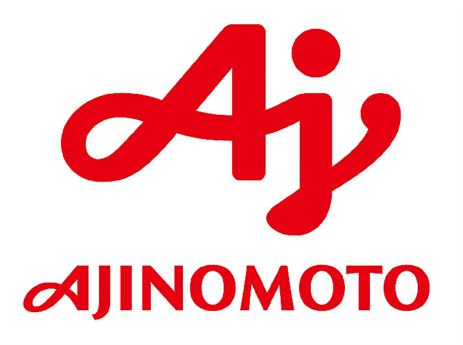
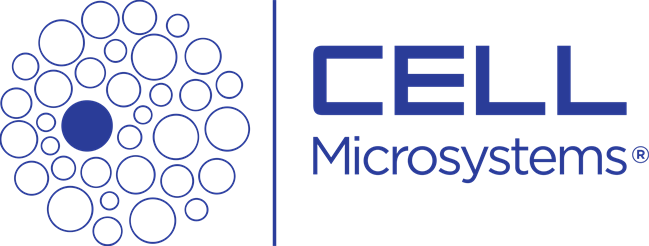
.png)
.png)
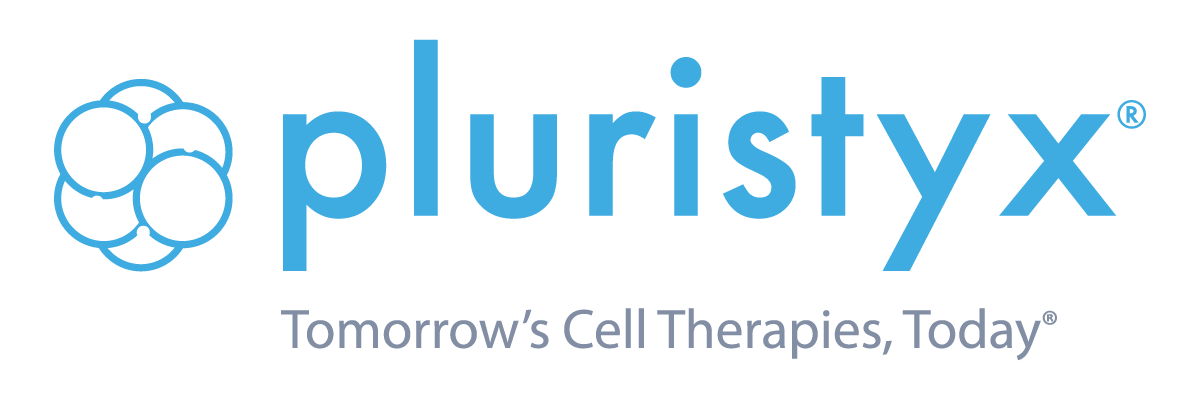
.png)
.png)
.png)
.png)

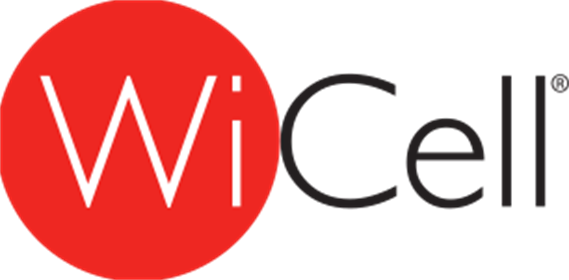
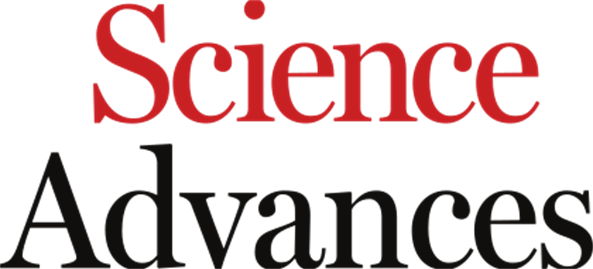

.png)
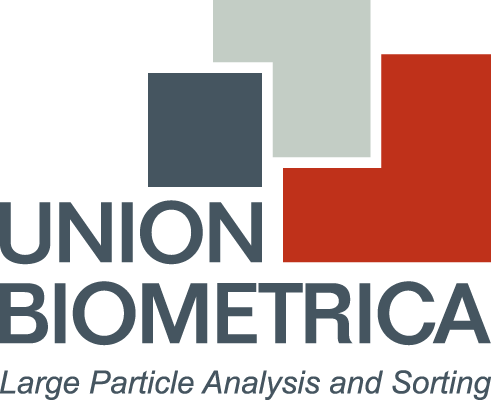

.png)
.png)